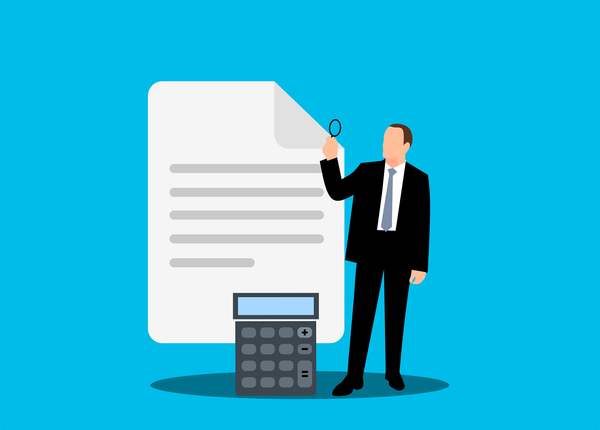The Worst Small Business Tax Scams of 2024 and How to Avoid Them in 2025

Tax season can be stressful on its own, but scammers make it even more challenging with increasingly sophisticated tactics. AI-generated emails, deepfake phone calls, and advanced phishing attacks have transformed tax fraud into a billion-dollar industry, with small business owners being prime targets.
The statistics are telling. In 2024, the IRS Criminal Investigation unit uncovered $9.1 billion in tax fraud and financial crimes. Nearly 2 million tax returns were flagged for identity theft and fraud, amounting to $16.5 billion in fraudulent filings.
The old advice of "don't click on suspicious links" is no longer sufficient. Scammers are now using AI to create convincing fake emails, deepfake phone calls, and phishing texts that impersonate the IRS, tax software providers, or even your accountant.
Each year, the IRS publishes its "Dirty Dozen" list, highlighting the most egregious tax scams. These scams, which range from fraudulent tax preparers to false refund claims, result in billions of dollars in losses for both businesses and individuals. Here's a brief overview of the top scams from 2024, so you can be aware of what to watch for in 2025.
7 Tax Scams to Watch Out for in 2025 from IRS's 'Dirty Dozen' List
1. Phishing and Smishing Attacks
Scammers are using AI to craft compelling emails and text messages that appear to come from the IRS, accounting firms, tax software providers like QuickBooks, or even trusted tax professionals. These messages often claim you need to verify tax details, confirm refunds, or respond to legal notices.
Scammers often use alarming phrases such as "Your account has been placed on hold" or "Unusual Activity Report," along with a phony "Solutions" link to restore the recipient's account. Unanticipated tax refunds can also be a bait for scam artists.
How to Spot the Scam:
- The IRS will never contact you by email or text about tax refunds, payments, or legal action.
- Check the sender's email carefully. Scammers often use addresses that look real at first glance.
- Hover over links before clicking. The IRS website always ends in .gov—never trust a different URL.
- If you receive a suspicious message, forward it to phishing@irs.gov and then delete it.
Related: Quickbooks for Small Business: How to Secure Your Account
2. Fake Employee Retention Credit (ERC) Promoters
Fraudsters aggressively market bogus Employee Retention Credit claims, convincing small businesses they qualify for large refunds—even when they don't.
These fraudsters charge high upfront fees, sometimes a percentage of the refund, and pressure businesses into filing fraudulent claims. The IRS has already identified over $1 billion in improper ERC claims.
How to Spot the Scam:
- Be cautious of cold calls or unsolicited emails about ERC refunds.
- Legitimate tax professionals charge for services, not for refund amounts. Never pay fees based on your refund size.
- If you filed an ERC claim under pressure, the IRS allows businesses to withdraw unpaid claims without penalty.
3. IRS Online Account Setup Scams
Some scammers pose as helpful third parties offering to set up an IRS Online Account for businesses. Instead, they steal tax IDs, Social Security numbers, and banking information to commit identity theft, file fraudulent tax returns, or take out loans in your business's name.
How to Spot the Scam:
• The IRS does not charge for setting up an online account—anyone asking for money is a scammer.
• Always set up your IRS account directly at IRS.gov, not through a third party.
• If someone requests personal tax information in exchange for help, assume it's a scam.
4. Offer in Compromise (OIC) "Mills" Scams
Some companies mislead struggling businesses into believing they can eliminate tax debt for "pennies on the dollar." These fraudulent OIC mills charge excessive fees while promising settlements that most businesses don't actually qualify for.
The Offer in Compromise (OIC) is a legitimate program offered by the IRS. However, many taxpayers do not meet the necessary technical requirements to participate in the program. As a result, they often end up paying high fees to promoters for information that could have been obtained for free by using the IRS's Offer in Compromise Pre-Qualifier tool.
How to Spot the Scam:
• OICs are a real IRS program, but they have strict eligibility requirements. Verify eligibility using the IRS Offer in Compromise Pre-Qualifier tool before paying anyone.
• Avoid tax firms that make big promises on radio, TV, or online ads.
• If you're facing tax debt, contact the IRS directly or speak with a trusted tax professional.
5. Fake Charities Exploiting Small Business Owners
Scammers create fake charities that look legitimate, using disasters or social causes to trick businesses into donating. In some cases, they steal business banking details under the guise of processing a donation.
How to Spot the Scam:
- Scammers create urgency to pressure businesses into giving money.
- Never donate via gift cards or wire transfers. Use a credit card or check instead.
- Verify the legitimacy of the charity, as scammers often use names that sound similar to reputable charities to mislead potential donors. Before making a donation, ask the fundraiser for the charity's official name, website, and mailing address so you can independently confirm its legitimacy. You can use the special IRS TEOS tool to verify if an organization is a legitimate tax-exempt charity.
6. Ghost Tax Preparers
"Ghost" tax preparers often promise large refunds by inflating deductions or creating false income reports. Some even file tax returns in your name to steal your refund. Once tax season is over, these fraudulent preparers vanish, leaving small business owners to face IRS penalties and audits.
While most tax professionals provide quality service, these ghost preparers, along with other unscrupulous individuals, exploit people and should be avoided at all costs. The IRS encourages individuals to choose a trusted tax professional, and IRS.gov offers valuable information to help people select a reputable, accredited practitioner.
How to Spot the Scam:
- Legitimate tax preparers sign all tax returns. If yours refuses to sign, that's a red flag.
- Avoid tax preparers who charge fees based on your refund size. Unscrupulous tax preparers may ask for cash-only payments without providing a receipt, and they often charge a percentage of the taxpayer's refund.
- If a tax preparer asks you to deposit your refund into their bank account, walk away.
- Research tax preparers before hiring. Look up reviews and check for complaints against them.
7. “New Client” Email Scams Targeting Tax Professionals
Cybercriminals are impersonating potential clients to deceive tax professionals into opening emails with malicious attachments. These scams aim to steal client records, financial documents, and sensitive tax information, putting both businesses and their customers at risk.
Scammers send emails that appear to be from real individuals seeking tax assistance, often using stolen or publicly available information to make their requests seem legitimate. Once a tax professional responds, the scammer sends a file or link that installs malware, providing them access to tax documents, login credentials, and business financials.
While these scams tend to increase during tax season, they remain a threat throughout the year. If cybercriminals gain access to a tax preparer's systems, they can steal personal and financial data from multiple clients, leading to identity theft, fraudulent tax returns, and significant financial losses.
How to Spot the Scam
- Be wary of unsolicited emails from new clients, especially those with urgent tax-related requests.
- Never open unexpected attachments or click on links without verifying the sender's identity.
- Use strong passwords and multi-factor authentication to secure email accounts.
- Call the potential client directly using a number you find independently, not the one in the email.
A single compromised tax professional's account can expose multiple businesses and individuals to fraud.
Related: How to Check If Your Business Is Affected by a Breach (And What to Do if It Is
Stay One Step Ahead of Tax Scammers
Tax scammers are becoming increasingly convincing, but you don't have to fall for their tricks. Remain skeptical, verify all information, and take your time before making any payments or sharing sensitive information.
Remember: If something feels off, it probably is. When in doubt, reach out directly to your accountant, bank, or tax service.
Bitdefender Ultimate Small Business Security. can help protect your company from phishing attacks, fraudulent emails, and other cyber threats. With features like AI-powered Scam Copilot, phishing and email protection, and real-time threat detection, you can safeguard your business against tax scams and financial fraud.
Don't let scammers take advantage of you—secure your business with Bitdefender Ultimate Small Business Security. Explore plans here.
tags
Author
Cristina Popov is a Denmark-based content creator and small business owner who has been writing for Bitdefender since 2017, making cybersecurity feel more human and less overwhelming.
View all postsRight now Top posts
How Do You Manage Your Passwords? We Ask Netizens
December 18, 2025
Cybercriminals Use Fake Leonardo DiCaprio Film Torrent to Spread Agent Tesla Malware
December 11, 2025
FOLLOW US ON SOCIAL MEDIA
You might also like
Bookmarks









